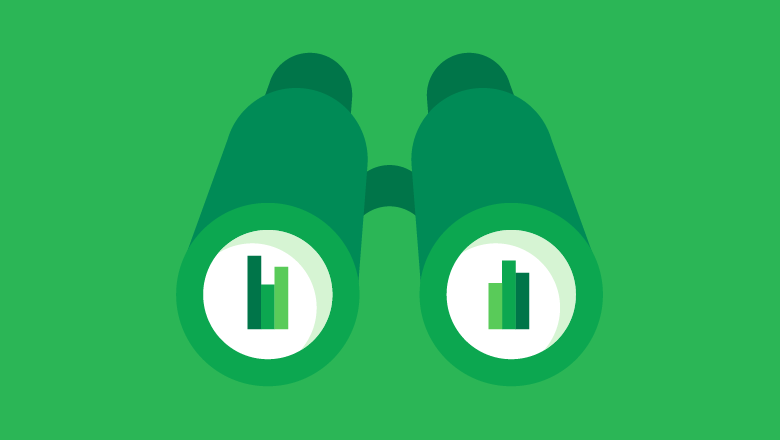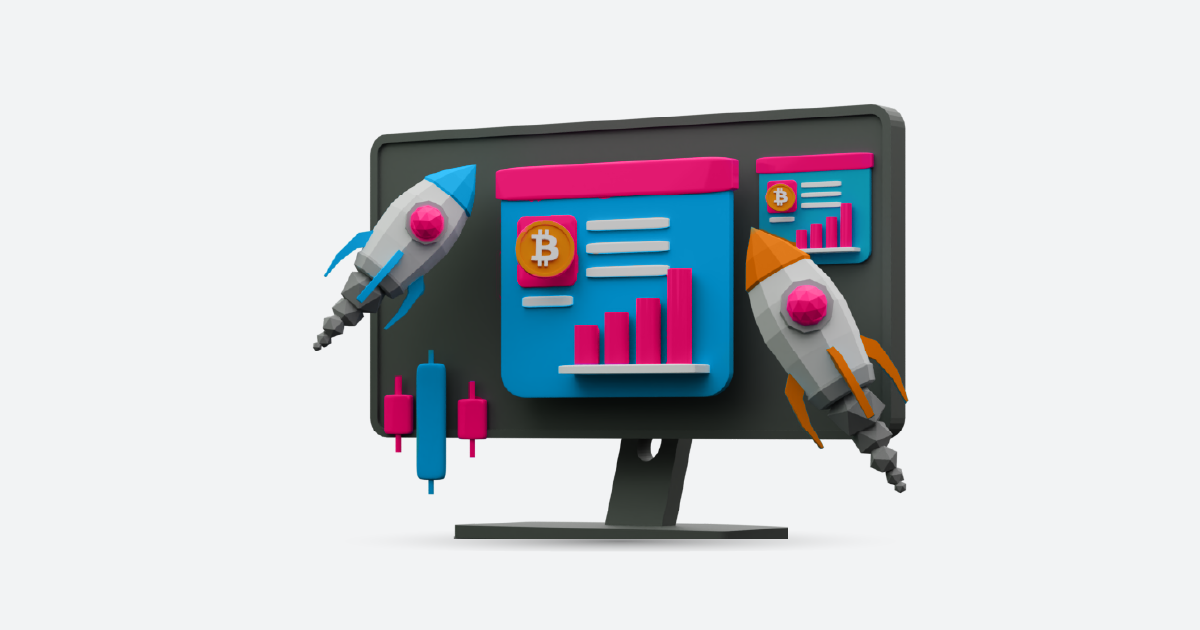In today’s digital age, where online reputation can make or break a business, brand monitoring has become paramount. Brands need to stay vigilant about what’s being said about them across various online platforms. This is where brand monitoring tools come into play. These tools offer insights into brand mentions, sentiment analysis, competitor tracking, and more, helping businesses stay ahead of the curve in managing their online presence.
Best Brand Monitoring Tools

1. AIM Insights
AIM Insights is a comprehensive brand monitoring tool that offers real-time monitoring, social media tracking, sentiment analysis, and competitor analysis. With its intuitive interface and customizable alerts, AIM Insights helps businesses stay informed about their online presence across various channels.
2. Brand24
Brand24 is another popular brand monitoring tool known for its robust social media tracking capabilities. It provides real-time alerts, sentiment analysis, and influencer identification, helping businesses effectively manage their online reputation.
3. Awario
Awario stands out for its advanced sentiment analysis and customizable reporting features. It offers real-time monitoring across social media, news, blogs, and forums, empowering businesses to monitor their brand mentions effectively.
4. Brandwatch
Brandwatch is a comprehensive social listening tool that offers advanced analytics and visualization capabilities. With its powerful data analysis features, Brandwatch helps businesses gain actionable insights into brand perception and market trends.
Key Features to Look For
1. Real-time monitoring
One of the most crucial features of brand monitoring tools is real-time monitoring. Brands need to be aware of any mentions or conversations happening about them as they occur. Real-time monitoring allows businesses to respond promptly to both positive and negative feedback, mitigating potential crises and capitalizing on positive interactions.
2. Social media tracking
With social media being a primary channel for brand interactions, effective brand monitoring tools should have robust social media tracking capabilities. These tools should be able to monitor mentions, comments, and direct messages across various social platforms, providing comprehensive insights into brand perception.
3. Sentiment analysis
Understanding the sentiment behind brand mentions is essential for gauging public perception. Brand monitoring tools that offer sentiment analysis can categorize mentions as positive, negative, or neutral, allowing businesses to identify areas of improvement or capitalize on positive feedback.
4. Competitor analysis
In addition to monitoring their brand, businesses can benefit from tracking their competitors’ online activities. Brand monitoring tools with competitor analysis features provide insights into competitor strategies, allowing businesses to benchmark their performance and identify opportunities for differentiation.
Comparison of Features
When choosing a brand monitoring tool, it’s essential to consider factors such as pricing, user interface, and customer support. While all the aforementioned tools offer similar core features, their pricing plans, user interfaces, and customer support vary. Businesses should evaluate their specific needs and preferences before making a decision.
How Brand Monitoring Tools Help Businesses
1. Reputation management
Effective brand monitoring platforms enable businesses to proactively manage their online reputation by monitoring brand mentions, addressing customer feedback, and mitigating potential crises before they escalate.
2. Customer engagement
By tracking brand mentions and engaging with customers in real time, businesses can foster meaningful interactions and build stronger relationships with their audience, leading to increased customer loyalty and advocacy.
3. Market Insights
Brand monitoring platforms offer valuable insights into market trends, competitor strategies, and consumer sentiment, enabling businesses to make informed decisions and stay ahead of the competition.
Tips for Choosing the Best Brand Monitoring Tools
1. Define your needs
Before selecting a brand monitoring tool, businesses should clearly define their objectives and requirements. Whether it’s real-time monitoring, social media tracking, or sentiment analysis, identifying specific needs will help narrow down the options.
2. Consider scalability
As businesses grow, their brand monitoring needs may evolve. It’s essential to choose a tool that can scale with the business and accommodate increasing data volumes and complexity.
3. Trial period
Many brand monitoring platforms offer free trials or demos, allowing businesses to test the features and functionalities before committing. Taking advantage of trial periods can help ensure that the chosen tool meets the business’s needs and expectations.
Case Studies
Case Study 1: Nike and AIM Insights
Nike, a global leader in sportswear, faced a public relations crisis when one of their athletes encountered a shoe malfunction during a highly televised game. Utilizing AIM Insights, Nike’s PR team was able to immediately track real-time social media mentions and sentiment spikes around the event. AIM’s competitor analysis feature also helped Nike compare how rival brands were performing amid the issue. By quickly identifying and addressing the negative sentiments, Nike was able to issue an apology, take corrective actions, and even launch a new campaign to restore consumer trust. Thanks to AIM Insights’ robust monitoring capabilities, Nike not only contained the crisis but turned it into an opportunity for growth.
Case Study 2: Coca-Cola’s Social Media Engagement with Brand24
Coca-Cola has always been a brand that emphasizes customer engagement. Through Brand24, the company identified that a viral TikTok trend involving a Coca-Cola product was gaining massive traction. By receiving real-time alerts, the brand’s social media team was able to engage with the trend right away, amplifying user-generated content and incorporating it into their marketing strategy. This engagement led to a 30% increase in organic brand mentions and a substantial boost in consumer sentiment. Brand24’s influencer identification feature also helped Coca-Cola partner with key influencers, driving additional exposure.
Case Study 3: Local Boutique’s Success with Awario
A small boutique, struggling to differentiate itself in a saturated market, turned to Awario for help. By monitoring customer feedback across social media, blogs, and forums, the boutique identified frequent complaints regarding slow shipping times. Using Awario’s sentiment analysis, the boutique made swift adjustments to its logistics and communication processes. The results were dramatic—a 15% increase in positive reviews, improved customer loyalty, and a boost in sales within just a few months.
Influencer Quotes & Tweets
1. Gary Vaynerchuk (@garyvee), entrepreneur and social media influencer: “In today’s hyper-connected world, brands can’t afford to ignore what’s being said online. Tools like Brandwatch and AIM Insights make it possible to engage with your audience in real time—don’t sleep on them!”
2. Rand Fishkin (@randfish), founder of SparkToro: “Brand monitoring is not just for crisis management. It’s about understanding how your customers feel and ensuring you’re part of the conversation. Brand24 helps brands uncover hidden opportunities in real time.”
3. Ann Handley (@MarketingProfs), digital marketing pioneer: “Awario’s sentiment analysis is a game-changer. It’s not enough to know people are talking about you—you need to understand the tone. Businesses that act on sentiment data build stronger relationships with their audience.”
4. Neil Patel (@neilpatel), digital marketing expert: “Using tools like Brandwatch gives businesses deep insights into what their competitors are doing right and wrong. It’s like having a window into your market—and that’s a massive advantage.”
Record-Breaking Stats
- Nike’s campaign recovery: With AIM Insights, Nike managed to turn a PR disaster into a growth opportunity, gaining a 20% increase in brand favorability within weeks after addressing the shoe malfunction crisis.
- Coca-Cola’s viral TikTok moment: Brand24’s real-time tracking and engagement features led to a 50% increase in user-generated content after Coca-Cola tapped into a viral trend on social media.
- Boutique sales boost: By leveraging Awario’s sentiment analysis, a small boutique saw a 20% reduction in negative feedback and a 25% increase in customer retention over six months.
These tools offer far more than just reputation management; they are vital in helping businesses navigate today’s fast-paced digital landscape. From crisis management to real-time engagement, the right brand monitoring tool can be the difference between a missed opportunity and a record-breaking success.
Conclusion
In conclusion, brand monitoring tools play a crucial role in helping businesses manage their online reputation, engage with customers, and gain valuable market insights. By leveraging real-time monitoring, social media tracking, sentiment analysis, and competitor analysis, businesses can stay ahead of the curve and maintain a positive brand image in today’s competitive landscape.
Ready to take control of your brand’s online presence? Request a demo from AIM Technologies today and discover how our brand monitoring solutions can elevate your brand strategy to new heights.
FAQs
What industries can benefit from using brand monitoring tools?
- Brand monitoring tools are beneficial for businesses across various industries, including retail, hospitality, healthcare, finance, and technology. Any business with an online presence can benefit from monitoring its brand’s reputation and engaging with customers effectively.
Are brand monitoring tools suitable for small businesses?
- Yes, brand monitoring tools come in various packages, including options tailored for small businesses with limited budgets and resources. These tools offer scalable solutions that can grow with the business and provide valuable insights into brand perception and customer sentiment.
How frequently should brands monitor their online presence?
- The frequency of brand monitoring depends on several factors, including the size of the business, industry trends, and marketing objectives. While some businesses may opt for continuous real-time monitoring, others may choose to monitor their online presence periodically, such as daily or weekly.
Can brand monitoring tools help with crisis management?
- Yes, brand monitoring tools are invaluable for crisis management, as they enable businesses to detect and respond to potential crises in real time. By monitoring brand mentions and sentiment analysis, businesses can identify emerging issues and take proactive measures to address them before they escalate.
Are there any privacy concerns associated with brand monitoring?
- While brand monitoring tools gather data from various online sources, including social media, news articles, and blogs, they adhere to strict privacy policies and regulations. Businesses should ensure that they use reputable brand monitoring tools that prioritize data security and compliance with privacy laws.




